30% Fewer Bankruptcies in Croatia in 2020, Says Vecernji List
ZAGREB, 8 February, 2021 - COVID-19 measures delayed thousands of bankruptcies last year, resulting in a drop of 30%, Večernji List daily said on Monday.
A moratorium on enforcement procedures and the measures put in place to help businesses reduced the number of bankruptcies, with 4,796 initiated in commercial courts in 2020, down from 7,166 in 2019.
At the moment, there are 3,019 Financial Agency motions in courts for the bankruptcy of over-indebted businesses. Almost 4,000 bankrupt businesses owe HRK 17 billion and court decisions are pending for another 3,061, the newspaper said.
European institutions say the number of new business bankruptcies in the EU dropped year on year by 20% in Q3 2020 and by 40% in Q2. Croatia is no exception.
Eurostat says the relatively low number of bankruptcies can be explained with government measures to help businesses during the pandemic crisis which may have enabled those which would have declared bankruptcy to continue to work.
The European Commission has singled out Croatia and Romania as the worst member states where creditors collect only 30% of their claims through bankruptcy, unlike Belgium and Finland, where they collect 90% of their capital.
For the latest business news from Croatia, follow the dedicated TCN business section.
Mayor Mato Franković Announces Plan to Save Tourist Season in Dubrovnik
February 8, 2021 - Mayor Mato Franković has announced a plan to save the tourist season in Dubrovnik this summer.
Jutarnji List reports that given the efforts made by the United Kingdom and the United States to vaccinate their populations, it should come as no surprise that European tourism-dependent countries were among the first to dive into precisely those markets, believing they could logically be among the first to send travelers.
This also includes Greece, a destination that is already dependent on the British market, which in recent days has begun to announce that it is ready to lift the quarantine for all tourists who can prove that they are immune to coronavirus when entering the country. According to current Greek announcements, they are ready to lift the quarantine for British tourists in early May, and the Greek government is convinced that the vaccination of the British market will save them in the 2021 season.
However, other Mediterranean destinations will likely try to grab their share of British and American travelers, including Dubrovnik, which is desperate to save the summer of 2021 after an unsuccessful 2020.
Moreover, Dubrovnik Mayor Mato Franković says that the Israeli market is also important for Dubrovnik, as they also have a high vaccination rate and were among the last to cancel flights to Dubrovnik.
More hope is placed in the British and Americans, and Dubrovnik has already received confirmation that EasyJet, British Airways, and Jet2Com will fly to the city this season. The Philadelphia - Dubrovnik line, which unfortunately only operated season, will certainly not be renewed yet this year.
"We have agreed on everything with the British market, although at the moment, it is a matter of waiting until the trips are formally and legally renewed, and we also have an agreement with the British TUI, which will bring passengers to Dubrovnik with their own planes. We are planning strong marketing in the UK market, but we are waiting for the right moment because it is too early to do so while we are in lockdown. For now, we are counting on the end of June, or the beginning of July and market research shows great interest from passengers," said Franković, adding that the first deals with the American market have already been contracted.
Namely, the Swiss cruiser company Viking Cruises will organize air bridges to Dubrovnik to bring American tourists to the city. They will board cruisers and sail to Split, Šibenik, Zadar, and back to Dubrovnik.
According to Franković, the company has developed strict health protocols that it has already presented to the National Headquarters and the Croatian Institute of Public Health, which include PCR testing of passengers before boarding the plane, new testing before boarding a cruise ship in Dubrovnik, and then daily testing during the trip.
Passengers would stay in Dubrovnik for a part of the trip. Still, these will be so-called 'bubble groups' that will not be able to freely see the city or mix with Dubrovnik residents and local tourists but will have separate visits to museums and other cultural and other institutions.
"We had already planned to start with these groups from February, but due to the situation with the virus, we have postponed everything until March, so we will see what the situation will be like then," Franković explained. He noted that the arrival of Viking Cruises would be a big step forward, given that a ban on cruising has been in force in Croatia for six months now.
Apart from Dubrovnik, American and British tourists are also important for Split. Still, in principle, Croatia will try to use the status of a car destination this year as well, which means relying on Germans, Slovenes, Austrians, Italians, Poles, Czechs, and others.
The Ministry of Tourism is closely monitoring the epidemiological situation in Croatia's strongest markets, and it seems good so far. However, Jutarnji has learned that the organization of the summer season will require waiting for the EU to take a border crossing stance.
"We reckon that this will be standardized at the Union level so that we do not have the situation this season as the Dutch did last year when they decided to put Croatia on the orange list in mid-July. We now see that the Danes are announcing Covid passports, but we are moving in the direction of regulating this at the whole community level so that there is no rebound. Of course, that means that the Greeks will have to abide by these rules," says Jutarnji's source.
In the meantime, the Croatian Headquarters is announcing easing measures at the local level, which would enable the relaxation to be gradual and thus minimally endanger the tourist season.
The cautious opening could be launched before the beginning of summer, and only in counties with a good epidemiological situation. Still, a significant influx of tourists and a full opening is not counted before the beginning of June.
For the latest travel info, bookmark our main travel info article, which is updated daily.
Read the Croatian Travel Update in your language - now available in 24 languages.
Tourism4All Promotes Accessible Tourism and Season Prolongation
February 8, 2021 – As part of the Tourism4All project funded through the Interreg Italy-Croatia program, a workshop on the accessibility of tourist facilities for people with special needs and the season prolongation will be held in Zadar.
The City of Zadar is a partner in the Tourism4All project funded through the Interreg Italy-Croatia program. The project aims to develop and promote a cross-border network of accessible tourist destinations. Also, it seeks to design a common approach and methodology for the development of new tourism products focused on people with special needs, as well as to extend the tourist season.
The interest of people with disabilities and people older than 65 in traveling is continuously growing, and this segment of the tourist market has vast underutilized potential. One of the activities of the Tourism4all project is the education of employees in the tourism and cultural sector about accessible tourism.
The workshop "Accessible Tourism and Market Potentials" will be held online on Thursday, February 11, 2021, from 11 am to 12 pm. The workshop will be led by Josip Milić, Head of the Department for Preparation and Implementation of EU Projects in the City of Zadar. Ana Perica and Josip Milković from the Association of the Blind of Zadar County will also join.
With the Tourism4All project, by improving the accessibility of natural and cultural sights of selected destinations and promoting new tourist services, the social inclusion of disadvantaged or people with special needs (disabilities, the elderly) will be encouraged. Also, the project intends to reduce tourism seasonality.
The project seeks to increase the availability of tourist products and services in selected destinations with exceptional natural and cultural heritage in Croatia and Italy.
Activities include developing a common methodology, capacity building, growth of competencies in the accessible tourism sector, networking, knowledge transfer, development of new services, preparation and implementation of joint tourism promotion of involved destinations.
For the latest travel info, bookmark our main travel info article, which is updated daily.
Read the Croatian Travel Update in your language - now available in 24 languages.
Forbes Ranked Mljet Among Five Undiscovered Mediterranean Islands
February 8, 2021 – Another recognition to the Croatian islands as Forbes ranked Mljet among the top five Mediterranean undiscovered islands.
As reported by Ina Rodin, director of the Croatian National Tourist Board in the USA, the renowned American magazine Forbes ranked the Croatian island of Mljet among the top five undiscovered Mediterranean islands for travelers who like to explore destinations "off the beaten track."
The article states that many beautiful destinations on the Mediterranean coast are still unexplored. The author of the article brings a list of five idyllic islands, perfect for those looking to escape from the crowds and mass tourism.
The island of Mljet is presented as a perfect place for all visitors looking for an active vacation, whether it is exploring the Mljet National Park, swimming, kayaking, or numerous hiking and biking trails on the island. On the other hand, all history and culture lovers can explore Polače, one of the oldest settlements on the island, known for its Roman palace dating back to the Roman Empire.
Along with Mljet, the list includes the Greek Syros, the Spanish island of Tabarca, the Kerkennah Islands off the coast of Tunisia, and the island of Kekova in Turkey.
"Announcements about Croatia and Croatian destinations in the most popular American media such as Forbes, The New York Times, The Washington Post confirmed the popularity and position of our country as a desirable tourist destination on the American market. Although the greater realization of tourist traffic from distant markets is currently difficult, our presence and visibility in the American media are important for future trends and travel," said the Croatian National Tourist Board director Kristjan Staničić.
Let's add that the world's leading brand of tourist guides Lonely Planet in its article provides an overview of four beautiful car routes in the southeastern part of Europe, and among the selected routes was a ride from Dubrovnik to Montenegro, which according to the author simply "takes your breath away."
For the latest travel info, bookmark our main travel info article, which is updated daily.
Read the Croatian Travel Update in your language - now available in 24 languages.
Zagreb County as It Once Was: Celebrating Patron Saints in 1930 (VIDEO)
February 8, 2021 - Traditions are very important in Croatia; some delightful footage of village life in Zagreb County in 1930 celebrating the feast day of the local patron saint.
When it comes to upholding traditions, I have never come across anywhere as diverse as Croatia.
It took me a while to realise, but seemingly every village has its own traditions, its own patron saint, and even many have their own traditional costume.
The celebration of the patron saint of the village is an eagerly-anticipated affair, and I always found it heartwarming to see these celebrations taking place in each and every village on the island of Hvar when I lived there - many of them in winter.
Upon deeper investigation, I was surprised too by the sheer variety of traditional costumes all over the country, each helping to define and give personality to the community.
As Croatia looks to reorient its tourism after the pandemic, these authentic experiences are jewels to build on, an area of Croatian tourism which should be developed and promoted a lot more in my opinion.
And a lot of these traditions have changed little over the centuries, including the music and song that accompanies them. Check out this delightful footage of Zagreb County almost a century ago, where the villagers are celebrating the local patron saint on May 17.
The authentic nature of village life in places like Zagreb county still exists today, and these local celebrations are wonderful windows into the traditional way of life here.
It is authentic village life which is very accessible on a day trip from Zagreb, made even more so by the new platform, Around Zagreb, which was launched last year by the city and county tourist boards. And if you are looking to catch one of these villages on its special day, the tourist board should be able to help with some options.
For more on travel in Croatia, follow the TCN Travel section.
Flights to Croatia: Ryanair Offers 18 Lines from Zadar this Summer!
February 8, 2021 - The latest news for flights to Croatia as Ryanair offers 18 lines from Zadar this summer.
Croatian Aviation reports that in cooperation with Lauda (Laudamotion), Ryanair plans to base one A320 at Zadar Airport in the upcoming summer flight schedule!
Namely, according to the original plan from 2019, this was supposed to happen in the summer season of 2020. However, after the outbreak of the global pandemic, the airlines temporarily abandoned that plan.
In the last few days, an increasing number of international destinations to and from Zadar Airport has been added to Ryanair's official website. Lauda will operate a larger number of flights.
Ryanair and Lauda will offer as many as 18 destinations from Zadar Airport in the upcoming summer flight schedule:
Berlin (from July 2, 2 times a week),
Brussels (from May 1, up to 4 times a week),
Cologne (currently unavailable for booking),
Dublin (from May 2, up to 2 times a week),
Gothenburg (from July 3, up to 2 times a week),
Karlsruhe (from July 3, up to 2 times a week),
Krakow (from May 2, up to 2 times a week),
London (from June 1, up to 4 times a week),
Manchester (from June 1, up to 2 times a week),
Marseille (from May 2, up to 2 times a week),
Memmingen (from July 3, up to 2 times a week),
Naples (from June 4, up to 2 times a week),
Paris (from July 3, up to 2 times a week),
Poznan (from May 2, up to 2 times a week),
Prague (from May 1, up to 2 times a week),
Vienna (from July 2, up to 3 times a week),
Weeze (from March 30, up to 3 times a week),
Wroclaw (from July 2, up to 2 times a week).
These are significantly more international destinations to Zadar Airport than in the summer flight schedule in 2020. Although as many as six lines will operate only in the peak season, from the beginning of July, Ryanair and its subsidiaries will once again confirm their primacy at Zadar Airport, where they will, if epidemiological measures allow, confirm their role as carrier number 1 this summer.
For the latest travel info, bookmark our main travel info article, which is updated daily.
Read the Croatian Travel Update in your language - now available in 24 languages.
Alemka Markotic: Most Vulnerable Part of Community Should be Protected
ZAGREB, 8 February, 2021 - The director of Zagreb's Infectious Diseases Hospital, Alemka Markotić, said on Sunday the most vulnerable part of the community should be protected and that those who refused AstraZeneca's COVID-19 vaccine would have to wait for the opportunity to be inoculated with another.
AstraZeneca still has not published its research on the elderly and we will see how protected certain groups are only after large-scale inoculation, she said on RTL television when asked why Croatia decided to inoculate those older than 65 with that vaccine.
The vaccine will be effective enough to partly protect those groups, and it is better to inoculate them with AstraZeneca's vaccine and protect them than not at all, she added.
Markotić said the European Medicines Agency met with the manufacturer of Russia's vaccine on 19 January and that the Russians would deliver the necessary documentation this month. "According to the information, the vaccine has a high percentage of success, with few side effects."
Asked if local civil protection authorities would soon be able to adopt decisions on COVID measures without the national response team, Markotić said "that will certainly be made possible, notably towards the tourist season."
"I think it's in everyone's interest that tourist regions start creating the prerequisites for a successful tourist season."
Regarding protests and violations of COVID restrictions, she said everyone should continue to be responsible and "be patient a little longer, until a higher percentage of people is vaccinated."
Asked how realistic it was for the fast-spreading strain of coronavirus to arrive in Croatia, Markotić said it was possible that it already had. "Judging by the numbers, we still don't have it and we still haven't identified it. It's a big hazard, that's why all of Europe and the world are cautious."
She said Croatia, Estonia and Finland had the most liberal COVID restrictions. "We are trying to keep the majority of the economy going."
For the latest news on coronavirus in Croatia, follow the dedicated TCN section.
PHOTOS: Transformation of Gajo Bulat Square in Split Begins
February 8, 2021 - The transformation of Gajo Bulat Square began in Split last week, which should be completed by May this year.
By removing the asphalt layer, the transformation of Gajo Bulat Square, the famous mayor of Split, and the great Croatian national revival from the end of the 19th century, began last week. The beginning of the works was attended by the Mayor of Split, Andro Krstulović Opara, together with associates and contractors, designers, and authors of the monument, which will soon be located on the future square.
"Gajo Bulat Square has a prominent historical, urban, and cultural significance in the city of Split. We will restore the aesthetic and urban identity to this valuable urban space, which it has lost in the past decades. With the figure of Gajo Filomen Bulat, we offer the honor and lasting memory of the leader of the populist movement of the Croatization of the Split municipality. With the future fountain, we emphasize the water which was of crucial importance in this part of the city and which, in fact, as good water, gave the name to this part of Split - Dobri. The key thing is that we return the squares and parks to the people of Split," said Krstulović Opara.
The works envisage the renovation of the staircase in front of the HNK building, erecting a monument to Gajo Bulat, then arranging the associated area with a monument to former sources of drinking water, and arranging the parks with trees and lush shrubs. It is important to note that the floor and public area around the monument to Gajo Bulat will be paved with stone slabs. The entire space of Gajo Bulat Square, after its renovation, can also serve as an outdoor, open stage of the Split Theater. The works are worth 3.7 million kuna, and the renovation is expected to be completed in early May.
The renovation of the Square was preceded by the renovation of the facade on the Croatian National Theater building, worth 500 thousand kuna. The foyer inside the building was also renovated, and an elevator for people with disabilities was installed last year. In May last year, the asphalt around the Square was repaired, and the Priuli rampart is currently undergoing conservation and restoration. By May this year, when Gajo Bulat Square's renovation is complete, this part of the city will take on a completely new look, says the City of Split.
To read more about lifestyle in Croatia, follow TCN's dedicated page.
Vaccination in Croatia: 25,200 Doses of Moderna and AstraZeneca to be Distributed Today
February 8, 2021 - Vaccination in Croatia continues as the Moderna and AstraZeneca vaccines will be distributed in Slavonia and Dalmatia on Monday.
HRT reports that Croatia's favorable epidemiological situation continues, as 276 new COVID-19 cases were confirmed on Sunday. The share of positive cases among those tested was 5.3%. Unfortunately, another 25 patients died.
The number of patients in hospital treatment and on ventilators was the same as Saturday - 1,142 patients are in hospital, and 107 are on ventilators.
On Monday, 25,200 doses of the Moderna and AstraZeneca vaccine will be distributed in Croatia. Those over the age of 65, the chronically ill, and everyone else who wants to be vaccinated will be vaccinated.
Epidemiologist Iva Pem Novosel (Croatian Public Health Institute) explained that the distribution to Slavonia and Dalmatia starts on Monday. Istria and central Croatia will receive doses on Wednesday, and the northern part of Croatia will receive them on Friday. Vaccine quantities are determined in proportion to the population.
Although pensioners' associations are asking to postpone the vaccination of the elderly with the AstraZeneca vaccine, Pem Novosel says that Croatia's situation is not such that vaccination should be postponed.
"Already after the first dose, the effectiveness develops in three weeks, and when two full doses are received with the maximum interval of 12 weeks, that efficiency is as much as 82%," she says.
On Sunday, Split-Dalmatia and Primorje-Gorski Kotar counties were in the lead in terms of the number of infected people.
Vladimir Mićović, NZJZ director of Primorje-Gorski Kotar County, called for caution when easing measures.
He is in favor of, he said, a certain gradual opening if there are indicators and preconditions, and above all, the opening of schools. He also mentioned, "coffee on terraces."
"Maybe we should think about it if there are conditions," he said.
On Monday, high school students return to the classroom in Zagreb and Lika-Senj County.
"Almost 30,000 additional high school students from Zagreb will return to school on Monday. All those schools that worked according to model A in the first half of the year will work according to the same model Monday, and it is difficult to say how this will affect the epidemiological situation," says Ivica Lovrić, head of the Zagreb City Office for Education.
Compared to December, Zagreb schools are 10 times less infected, he added.
"We have 114 infected students and 86 infected employees. If we put this in the context of somewhere around 100,000 children and employees coming to schools, then that really isn’t a big number. We hope that the number will not grow; of course, if the epidemiological situation worsens, we will again consider the introduction of model C," he points out.
Valentina Zdunić, head of the Department for Social Activities of Lika-Senj County, announced that as of Monday, a total of 1,135 high school students would be in school. She emphasized that the schools are ready and that if the epidemiological situation worsens, they will switch to another teaching model.
To prevent this from happening, adhering to epidemiological guidelines is the best option.
To read more about COVID-19 in Croatia, follow TCN's dedicated page.
A (Vaccine) Remedy against the Default Negativity Virus in Croatia
February 7, 2021 - A fountain of Dutch positivity in rural Karlovac county has developed a vaccine to combat the lethal default negativity in Croatia. Meet the ten steps.
It all started 6 days ago when I was looking around for a happy story to balance the misery of protests, corona and economic gloom. I chanced upon an article by one of the happiest people I know in Croatia, Dutchman Rene Pronk, who has been living in rural Croatia for 8 years. He had written a really nice piece called 20 Reasons Why Croatia is the Best Place for Living. A nice, positive story which was quick and easy for me to write, would generate traffic for sure, but mostly would sprinkle some specks of happiness in these less than happy times.
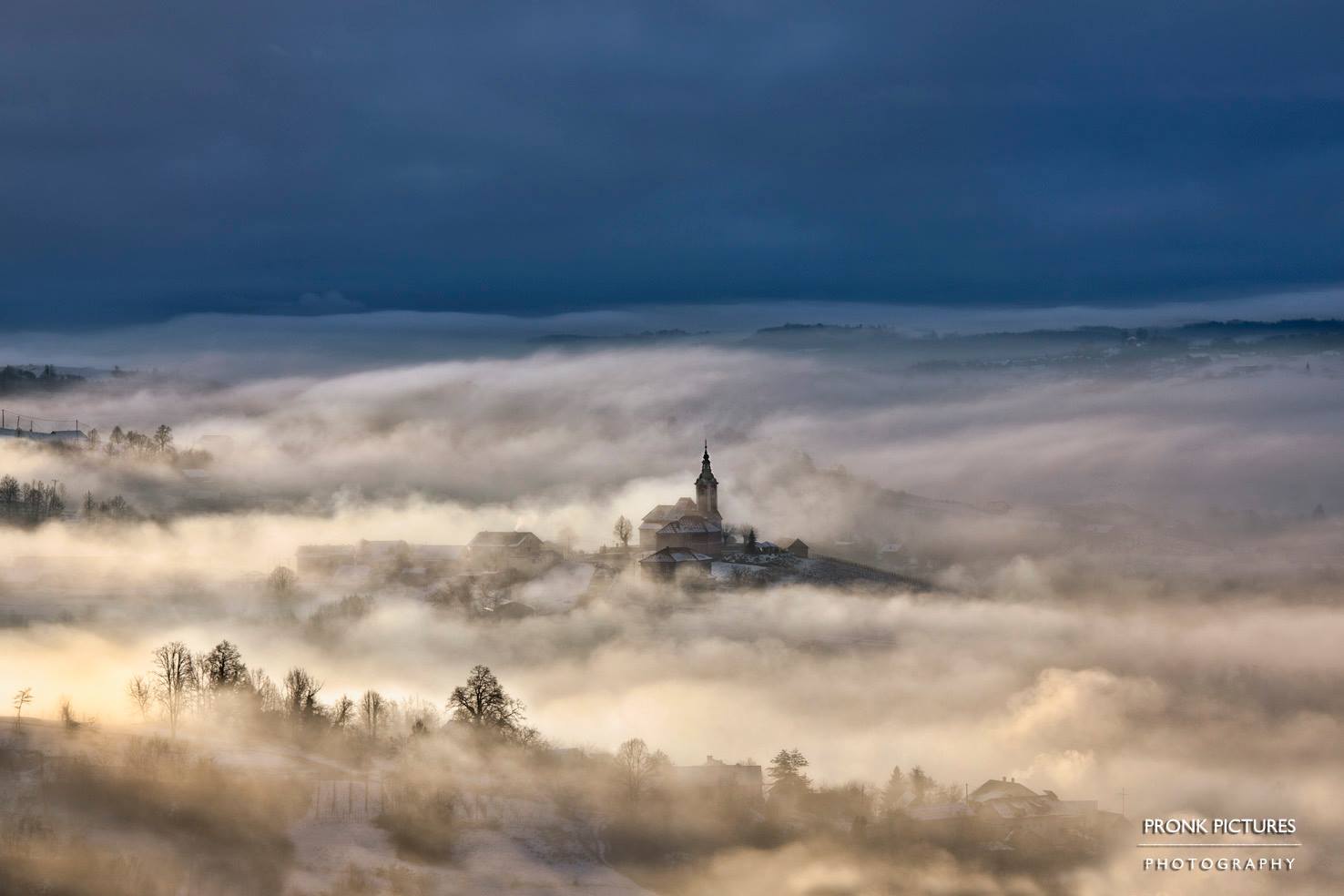
At least that was the plan...
The negative voices were first out of the blocks as usual, so much so that it all merited a follow-up article - What Happens When a Foreigner Writes Positively about Living in Croatia?
This merited yet more dismissive remarks, including an interesting discussion on how there were no foreigners moving to Croatia to work in roles other than top management in Croatian companies. The foreign writers writing for TCN didn't qualify for some reason, as the owner is a foreigner, at which point young Rimac popped into the comments to mention that he employs more than 100 foreigners in his Croatian company, for example.

The point of the second article was to highlight a beautiful response from Rene when I asked him about what he was running from in his home country, how many millions he had, and which secret service he was working for (all labels and assumptions foreigners are subjected to here). His lovely response can be read in the link above, but as part of it, he mentioned that he had developed a vaccine against default negativity in Croatia.
There were several comments asking to know more about the vaccine against default negativity, including this message all the way from Australia:
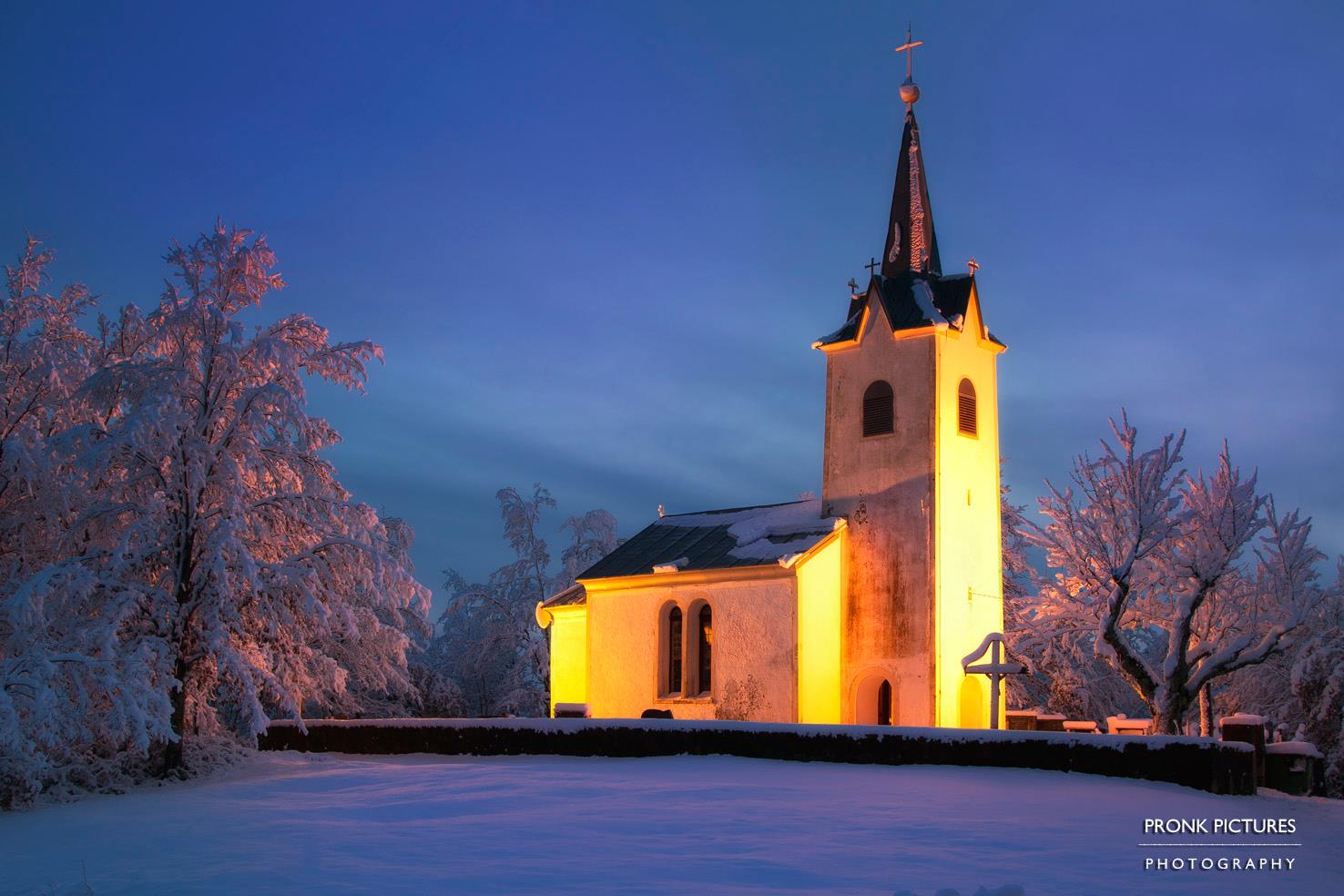
Hi Paul,
I just want to check if you're the guy living in Croatia. If so, I read your article - What Happens When a Foreigner Writes Positively about Living in Croatia. You made me realise something about myself. I'm an Australian Croatian, meaning I'm first generation Australian born of both parents being born in Croatia and as far as I know 100% Croatian ancestory. What I realised about myself is that I too have developed the negativity curse. I'll call it a curse. If the positivity vaccine is able to be sent to me I would be eternally grateful. Ok, I know it's not real, but I wish it was that easy. My father is negative and so was his mother yet his father, my Dida, was the most beautiful man I've ever known. Do you know much more about the negativity in Croatians that you can write about? I have a new interest in this subject now that I'm aware that is not just me. To be honest, it sucks.
Take care.
Glass half empty ?.

So I asked Rene if he would send me some of the vaccine against default negativity. This is what came back:
When we settled in Croatia in the Summer of 2013 I quickly noticed that it wasn't all about beautiful beaches, great waterfalls, friendly people and clean air. Something was obviously disturbing me but I could not instantly figure out what it was. My wife and I have lived in many different countries all over the planet so it wasn't really the difficulty of adjusting to a new home; neither were we homesick.
I thought it would pass. After all, Croatia was still coping with a big financial crisis that hit so many other countries all over the world as well. But soon I learned that the air that I was breathing had a stubbornly thick substance that was all around; a virus that affected many; negativity.

I am not trying to appear here as some positivity guru. Just for your information, I suffered from severe depression for more than seven years in my life. I overcame it and decided that I did not want to get depressed again in Croatia, but neither do I want to fake some optimism that I do not really possess.
I am very serious when I say that Croatia is among one of the best places to live on this planet. Making a living here is of course of a different nature and a quite more complex story for most Croats that do not have access to the right connections. Can life be happy and good in beautiful Croatia?
Is there something we can do to get rid of the default negativity virus? Is there a vaccine? Yes and no. No, there is not a simple and easy way one-time injection. But yes, we can really boost our immune system with some of the ingredients I have written here. And if more people try to practice them Croatia will one day be freed of a virus worse than what we are facing now.
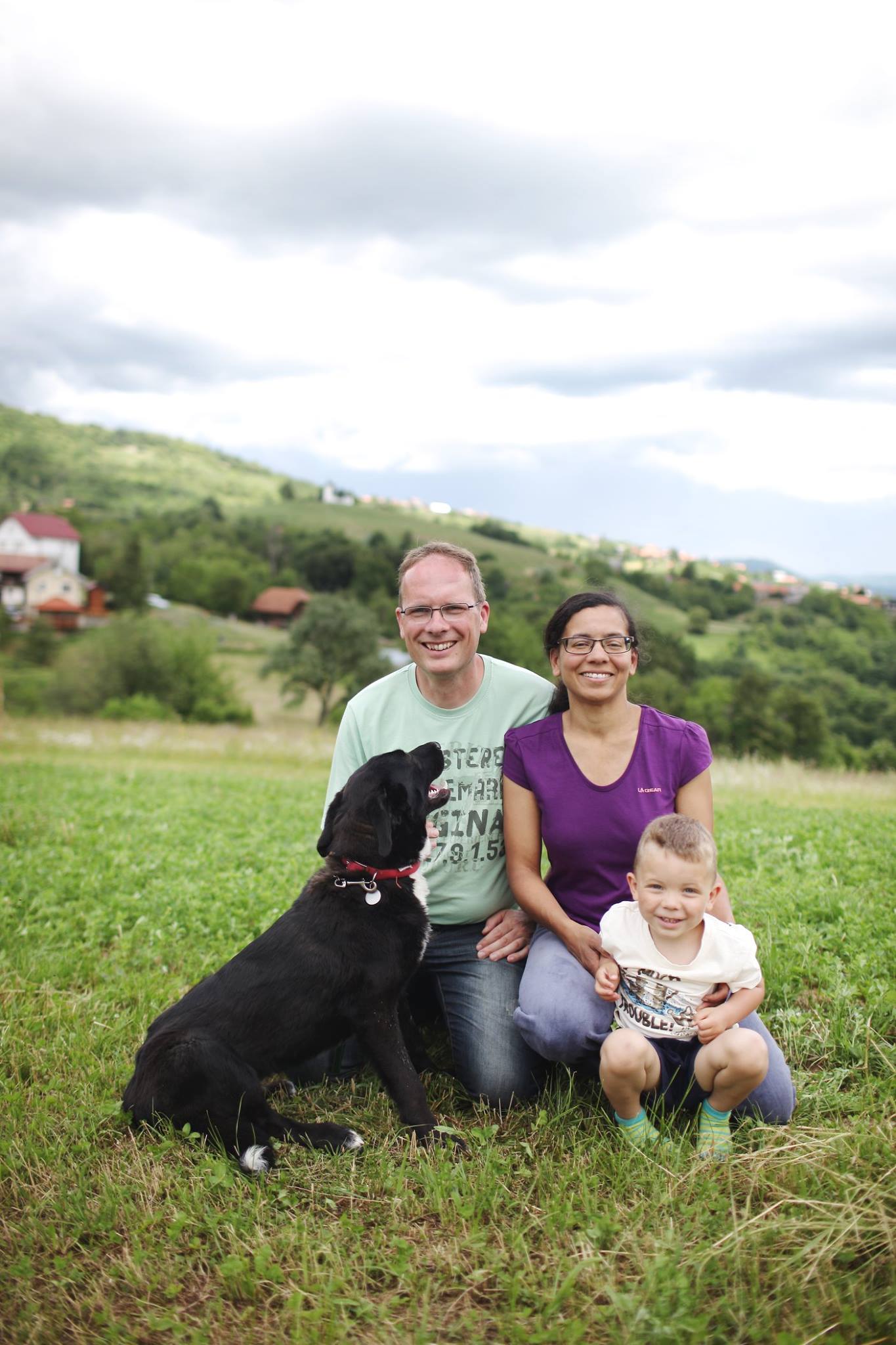
1. Be a fountain, not a sponge
There is a daily decision that we all have to make: Do I want to copy-paste my environment and absorb all the negativity of the media and bad news? Do I want to join the daily number of thousands of government cursors in the coffee bars? Do all my negative and cynical comments on social media contribute to my happiness and that of somebody else? Do I really feel better by judging other people? Frequently expressing ourselves in a negative way about circumstances and others means that we have no connection with the persons we really are. We then choose to be sponges instead of fountains. I realize that the word fountain may cause some question marks for those familiar with the hobbies of Zagreb's mayor. But what I mean is that we need to choose daily either to influence our outside world positively by what we have stored up inside of us or otherwise absorbing all the negativity that goes on around us. Never let circumstances dictate the dreams in our hearts.
2. Exchange fatalism for opportunities
Part of the negativity default in Croatia is the fatalism that unfortunately is deeply rooted in many of the religious mindsets of the people here. Maybe even dating back to the days when parts of Croatia were for centuries under Islamic rule. When something bad happened, it was Gods/Allah's will and there is nothing we can do about it. Well, I see things rather from a different angle. What if we try to make our last failure a diving board for our next success, learn from our mistakes and purify our dreams and plans? If there is a God, wouldn't he be willing to bless instead of making life miserable for us (just suggesting)? Change your parameters on religion and this unproductive fatalism and become an opportunity seeker. What worked against Croatia for so many years can be a huge opportunity to work for Croatia in the years to come.
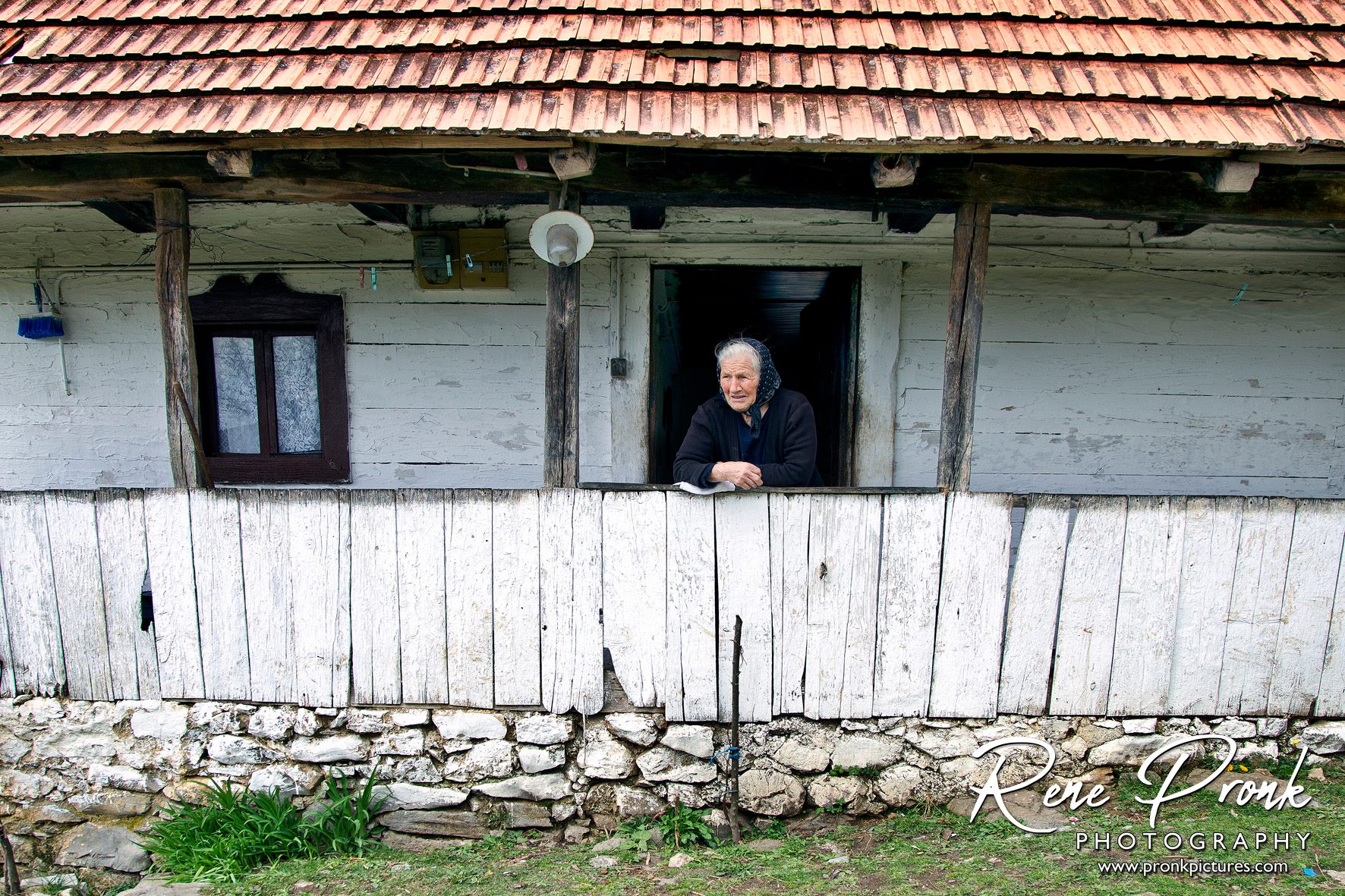
3. Happiness makes us rich
The overall thinking in Croatia is that the foreigner has big bags of money and must, by definition, be extremely happy. Well, I have met some extremely rich Croats with boats in several ports and houses on pretty mouthwatering locations and yet they are not particularly appealing as happy and joyful people to me. In fact, they are pretty unhappy and perhaps they think that their next purchase or career move will bring the joy they so much long for.
I spend much of my time among the "poor" and lonely in some of the most depressing and deserted places of rural Croatia. I drink terrible Turkish coffee in their houses and try to survive some of the most mortal homemade "rakijas". I listen over and over to their stories. These people share their struggles, their hugs and give me some of their eggs and veggies. Rich, very rich people mostly do not have such a habit. In the best case, they support as distant philanthropists. Now, consider, who is really happier?
Those who want to add and gain more and more to their short-lived lives? Or those who can easily let go of things and have time to share and care? Who is really rich in this world?
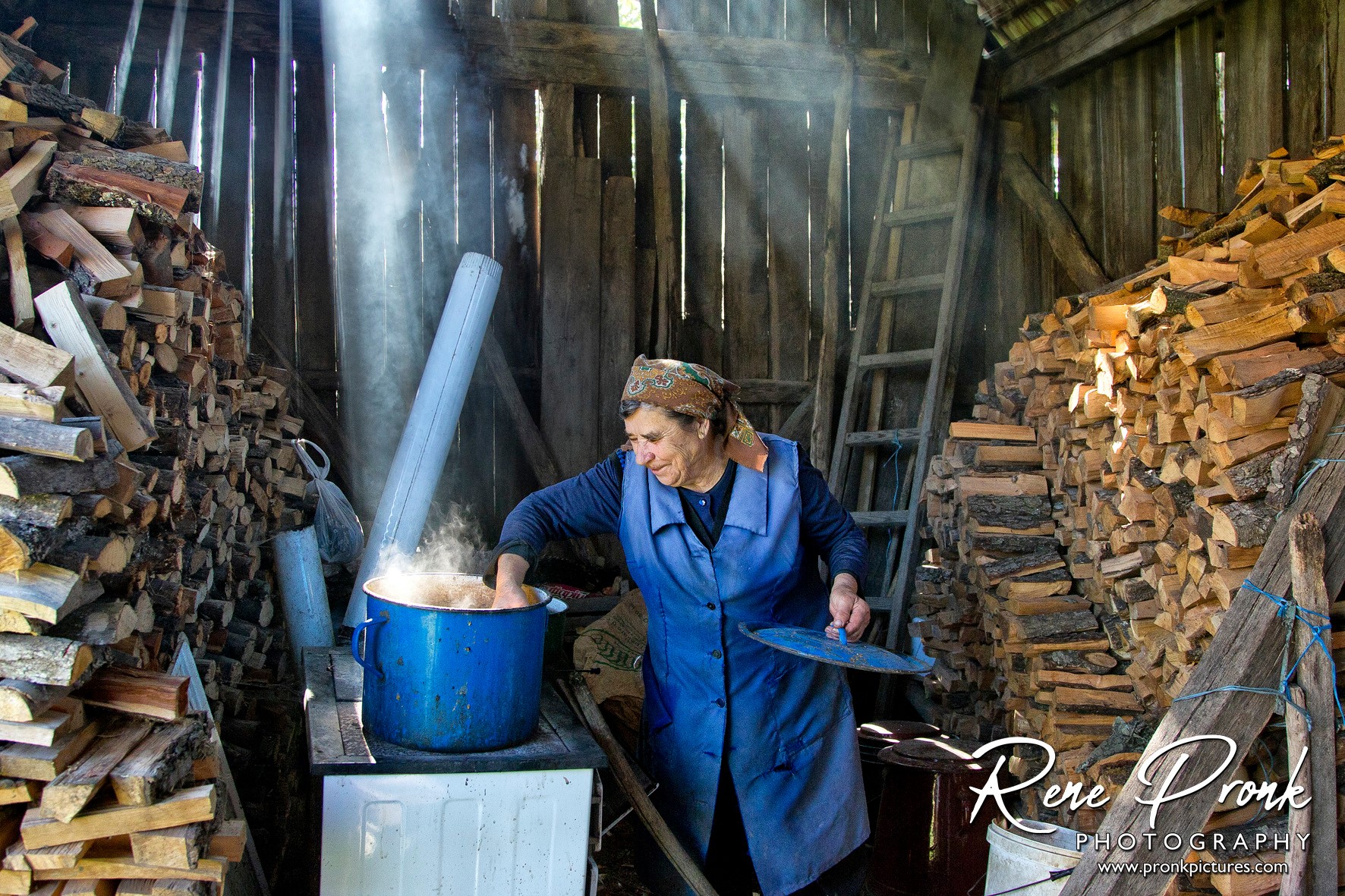
4. I want my neighbor to succeed
One of the worst things in especially rural Croatia is the overall attitude followed by many 'I don't want my neighbor to succeed'. It is deeply rooted in this country and it found its way all the way to the parliament. One particular political party was even selling t-shirts that some other political party is nothing but a bunch of thieves. Not really a very constructive way of expressing your positive plans for a better Croatia. Networking and co-working are subjects best to be avoided, it seems.
We came across that attitude in a very unpleasant way when we started our rural tourism projects in 2004. We learned the hard way what "blufiranje" really means and when personal threats become very serious. It is time for the tide to turn and learn that if we start blessing (speaking positively) our neighbor, countless blessings (positive things) will come to us. That is an unwritten law in the universe really worth trying. When we are convinced of your own positive dreams and plans there is no need to blame and curse neighbors anymore. Working together makes 1 + 1 = 3
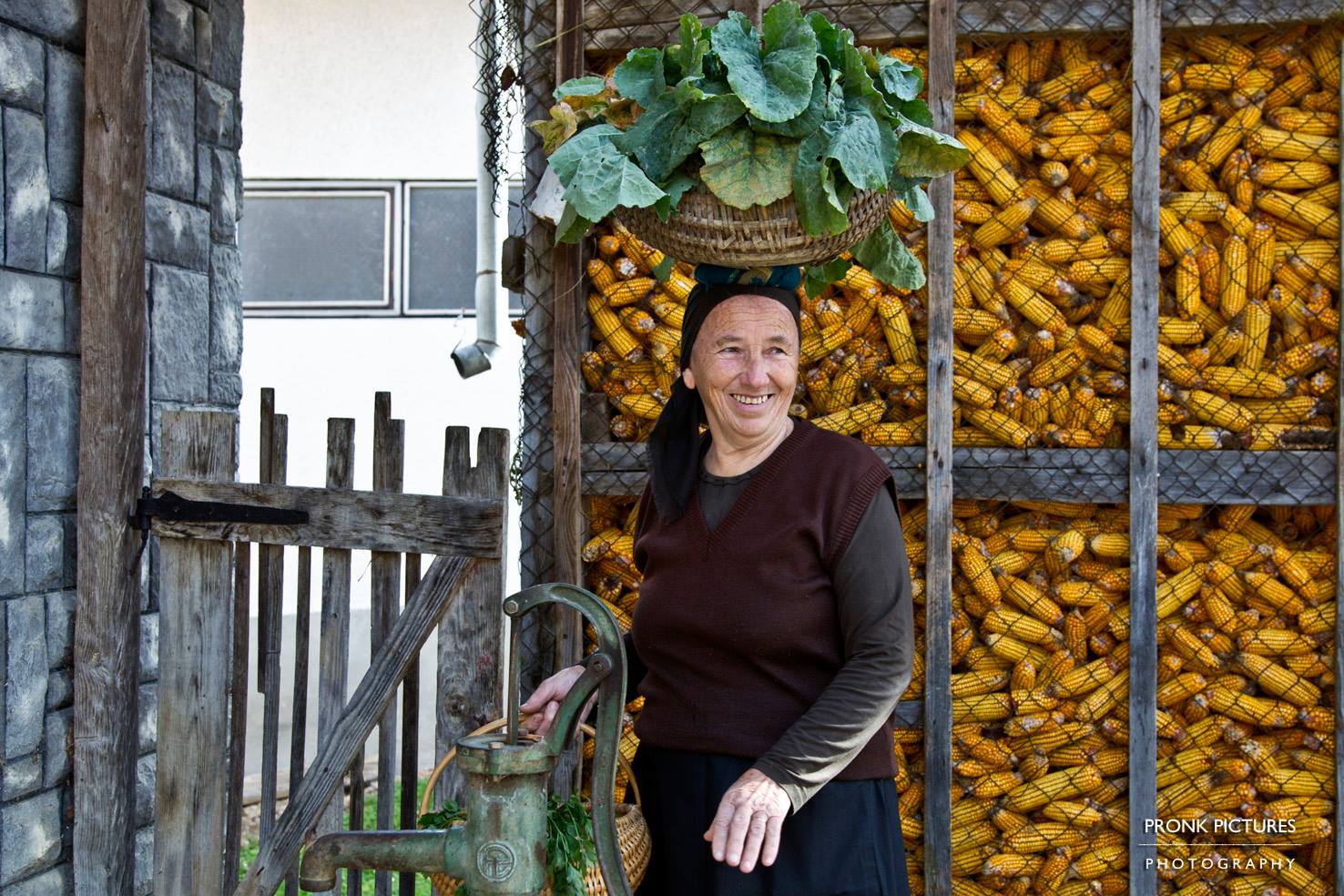
5. There is beauty in everything
Everything waits to be noticed. The biggest problem we are facing in the world right now is not that we are in lockdowns but that the biggest part of humanity is locked up within themselves. Most of the things we do as people we do it with unawareness. If we are not aware we are not present in the "now". And "now", today is the right time to change our life.
As a photographer, I am an opportunity seeker. Even in sometimes seemingly ugly situations, a wonderful picture can be born if the right light falls on it. Just be present and accept difficult and unpleasant situations. Wait a little for the right light and we will see things differently. Create a mental picture and begin to believe in it. This is for instance how I look at Karlovac. It was once one of the most beautiful cities in Croatia. Now it is in a very deplorable state. But the eyes of a believer still see the beauty that once was and hopefully will be again.
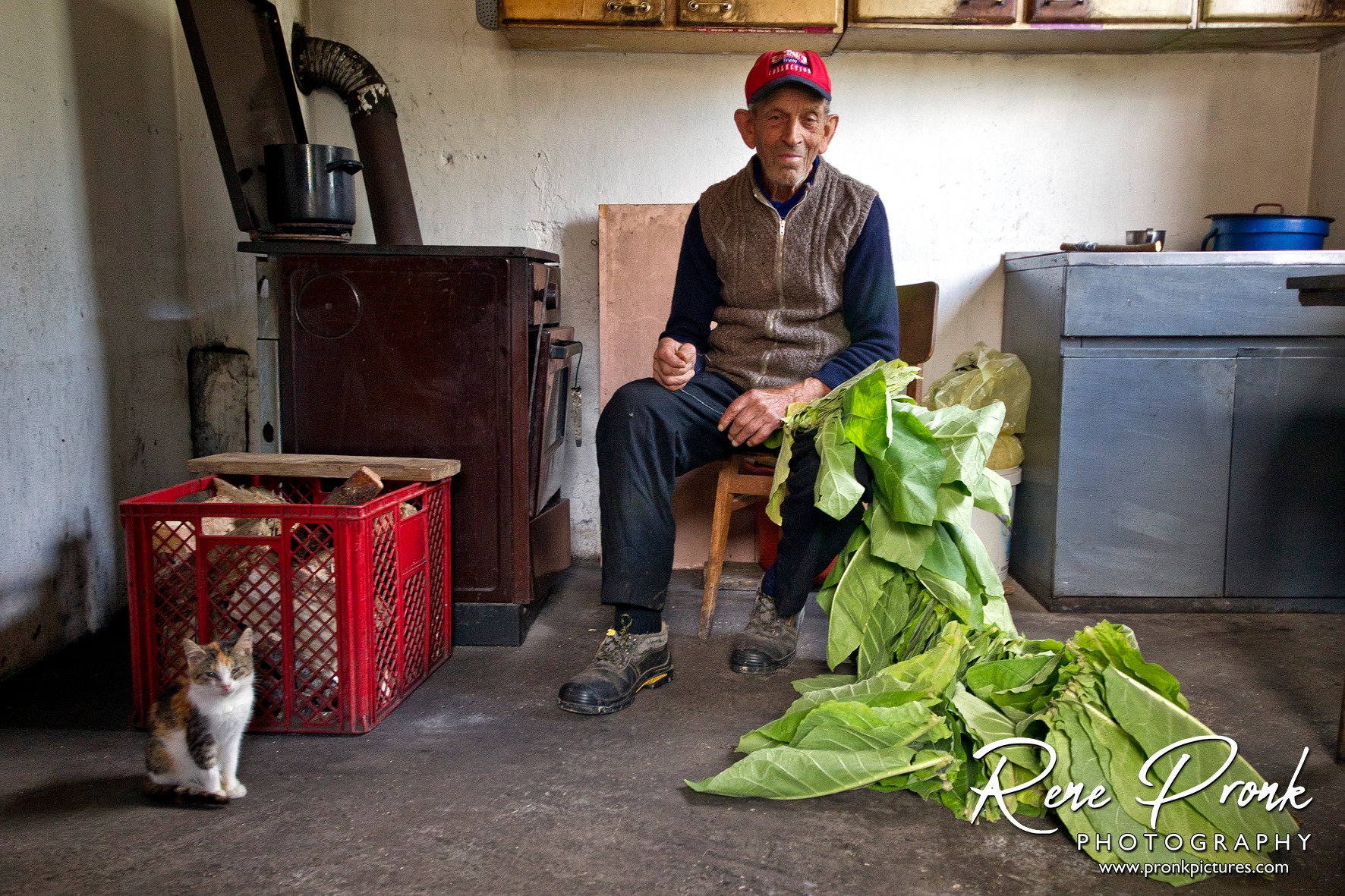
6. Try to smile in Karlovac
Ever tried doing your shopping in the city where nobody smiles??? I like to give compliments to those who think their jobs suck and their payment is an understatement for just "surviving" money. I smile at the lady behind the cash register in Konzum. I do give a compliment to that lady who is cleaning the public toilet and leave her some money for a free coffee. Remember, people will soon forget what you have said but your attitude towards them can make a lasting impression. Drop many moments of friendliness in your everyday life in Croatia (especially in Karlovac) and you will be happier too!
7. Find the gold in the rock
I met Milena 8 years ago in a remote village between Karlovac and Slunj. She is of Serb origin and a minority in Croatia. That is also how she felt, how she was treated and how she behaved. Her parents were very poor and she left school without any papers. When I first met her she said that life just did not work out for her and that she was living on the devil's bud. At that moment a beautiful rainbow appeared in the sky. I told her that even the devil's bud had some surprise in store. From that day on things slowly started changing.
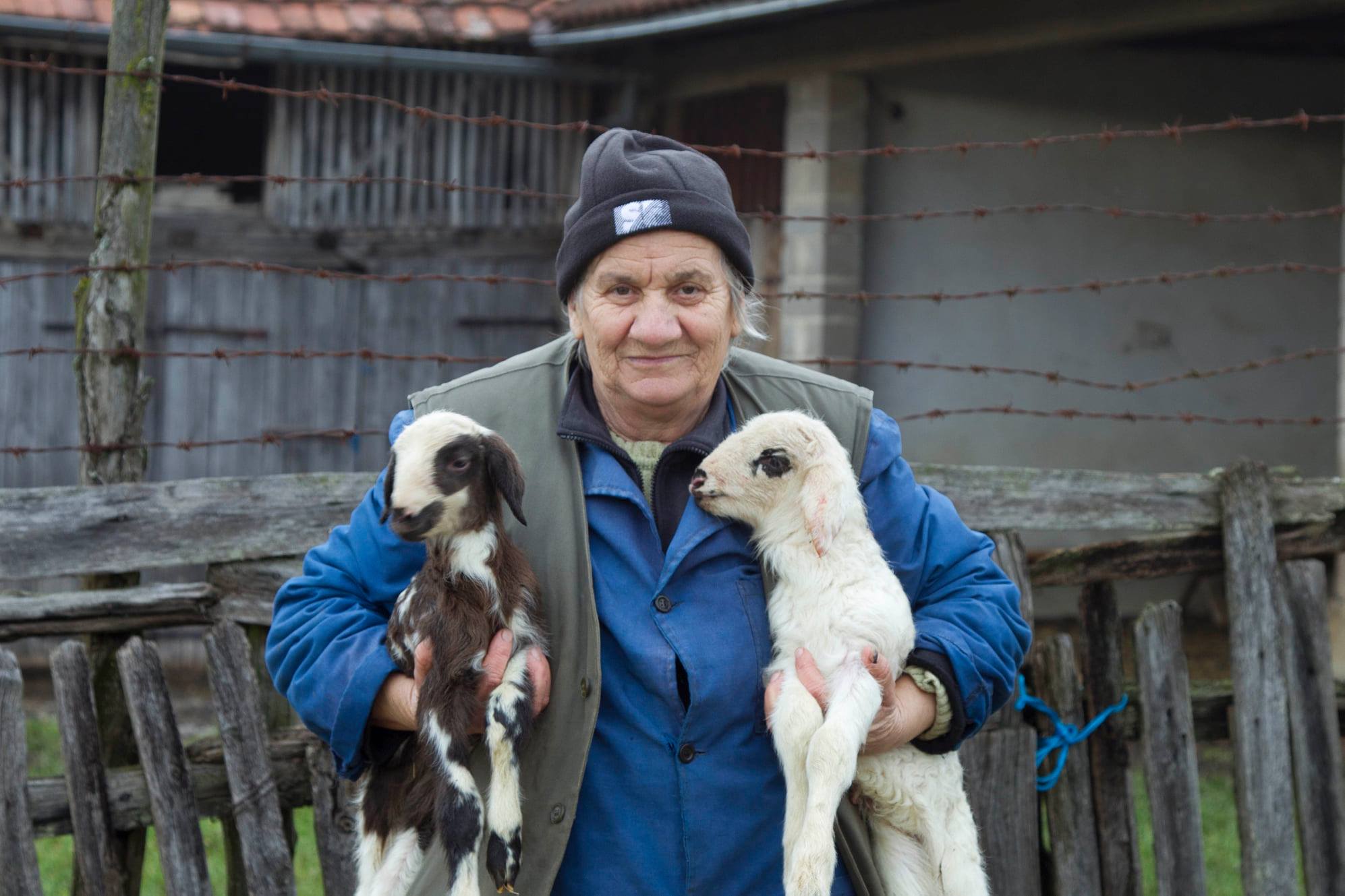
It is extremely hard to try to get people out of poverty. It is not just the circumstances that need a reset but also the mindset of those in poverty and the problem of the absence of friends and coaches. I offered Milena a job as a volunteer in our foundation. She did many of our translations and later on, she ran a small souvenir shop that we started in Slunj. She passed her driver's licence and we were able through the help of people in the Netherlands to improve her living conditions and get her a small car. I told her that I believed in her and so many coaching and buddy conversations were shared between us. Nowadays she is the manager of several stores as she works for a foreign investor. She runs five of his businesses and she does it well.
The point is... If you feel down because of your circumstances start to dig for gold in the rocks. Be a buddy and coach for someone else who is in much worse circumstances than you are in. It is so easy to hit ourselves against the rocks and even stumble or call the rocks impossible to surrender. But there is gold in many people. There is gold in many Croats. It takes a man or woman of good faith and perseverance to bring the gold to the surface.
8. There is still something good about all the bureaucracy
Now we are getting curious.... Is there anything possibly positive about the paper monster in Croatia? Yes, there is. Thinking back on my life in the Netherlands going to a tax office and trying to meet a real person in that office was a mission impossible. Everything was digitalized. One could only reach them by phone or by mail. There was no such thing as personal contact or making reference to one of the workers that dealt with my case. Not so in Croatia. You can just walk into their offices and if you are lucky and curious even get to know how much tax your next-door neighbor needs to pay this year as papers are always all over the place. My point is very simple. "For every disadvantage, there is an advantage" (Johan Cruijff)
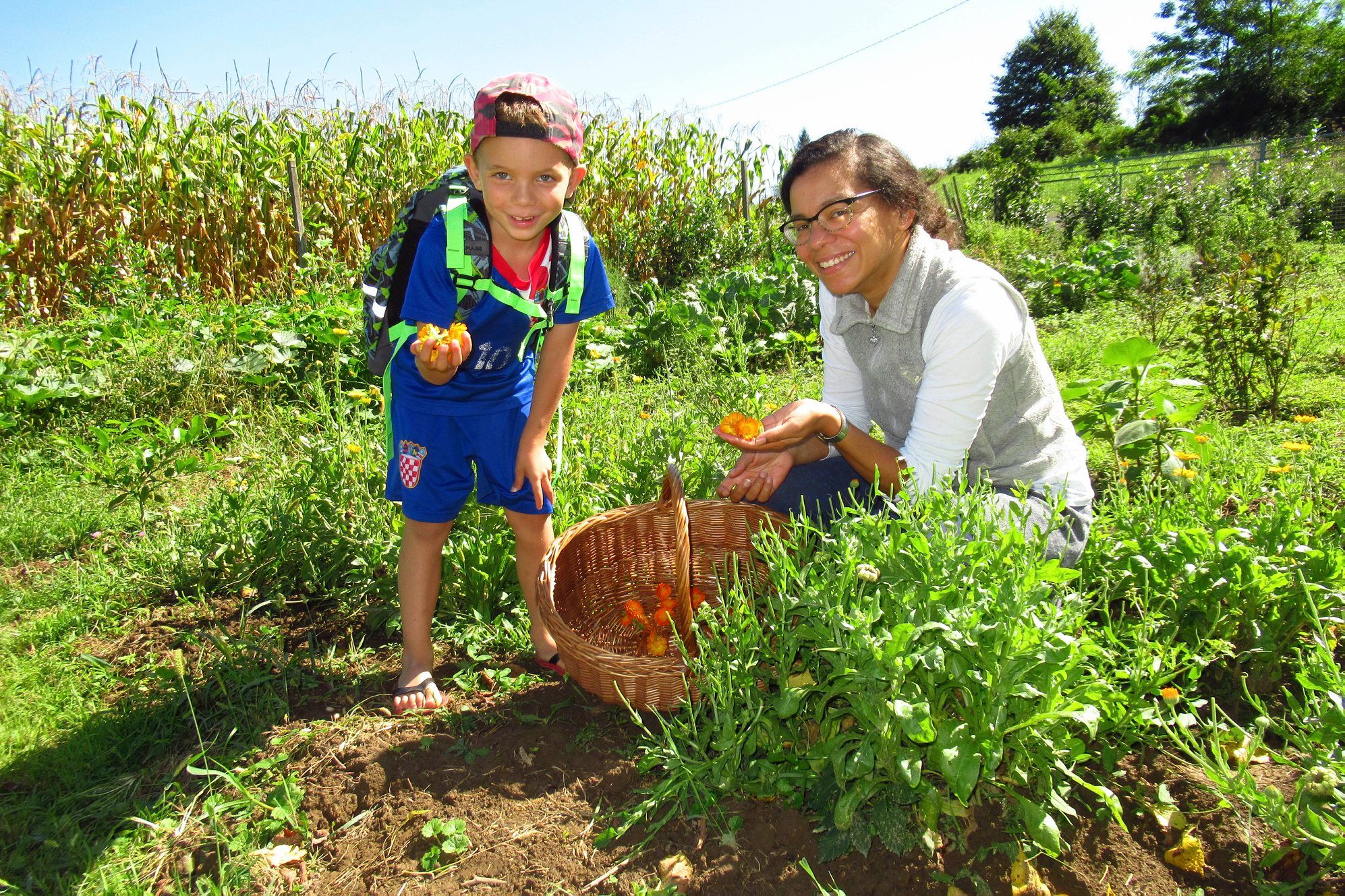
9. Start a garden
One of the greatest things in Croatia is the "domaci" mentality. Croats like homemade and homegrown stuff. So why not indulge ourselves and join that mentality. It is a great antidote for dark and doomy days in Croatia. For seeing our own flowers and veggies growing makes us thankful and patient. It teaches us to adjust to the rhythms of the season. I start my daily routine in my garden every morning when I wake up. Just see what is growing and take on that grateful attitude. Never take it for granted.
10. Positivity attracts the right people and the right opportunities.
Do not try to convince people whose mindset is set to misunderstanding you. Do not try too hard to let the "die-hard negativist" think differently. Better ignore them or make them smile. If people think Croatia sucks, just let them think and talk that way. They are probably looking for an excuse for their lack of creativity and their own personal failure. The more positive we will speak, think and act the more positive people and circumstances we will attract. In the end, the wrong people will leave our lives as they cannot stand the atmosphere around us. Eventually, we will find ourselves surrounded by the right and positive people who can really contribute to our goals and dreams and to a better and more positive Croatia.

Now enjoy another positive experience - Rene's wonderful photography documenting the beauty of rural Croatia.


